Series kicks off Feb. 7 with discussion of retaining and engaging enrolled families
As part of ITR’s mission to connect leaders in the field of children’s mental health, we are excited to announce our 2017 Colloquia Series, featuring three discussions on new research from ITR faculty. Space is limited, so reserve your spot early.
Feb. 7 – Project INTERFACE: Promoting Parent Engagement in Parent Education Programs | 3:30-5 p.m., ITR offices
Dr. Richard M. Lee and Dr. Alisha Wackerle-Hollman
Problems in engaging and retaining enrolled families is a significant barrier to reaping the effects of evidence-based parenting interventions. Studies show modest rates of enrollment and retention in evidence-based parent training particularly among racial/ethnic minority families. We will describe our work to develop and test a brief group-based engagement and retention priming module for families from diverse and disadvantaged backgrounds.
The work was funded by a seed grant from ITR in 2015.
 About Dr. Lee: Rich’s research interests are in understanding the psychological aspects of culture, ethnicity and race that function as risk and protective factors for well-being, mental health, and achievement in ethnic and racial minority populations. Dr. Lee has received NIH, NSF, and foundation funding to support his research.(Full bio)
About Dr. Lee: Rich’s research interests are in understanding the psychological aspects of culture, ethnicity and race that function as risk and protective factors for well-being, mental health, and achievement in ethnic and racial minority populations. Dr. Lee has received NIH, NSF, and foundation funding to support his research.(Full bio)
About Dr. Alisha Wackerle-Hollman: Dr. Wackerle- Hollman is an educational psychologist with a passion for engaging communities and young children to improve child and family outcomes. Alisha’s interest focuses on two primary strands of research: a clinical foci on parenting education and development and an applied foci centralized around early childhood assessment and intervention.(Full bio)
Hollman is an educational psychologist with a passion for engaging communities and young children to improve child and family outcomes. Alisha’s interest focuses on two primary strands of research: a clinical foci on parenting education and development and an applied foci centralized around early childhood assessment and intervention.(Full bio)
March 27 – Personalizing Treatment for Adolescent Depression: Challenges and Opportunities | 3:30-5 p.m., ITR offices
Dr. Meredith Gunlicks-Stoessel
 There are now a number of evidence-based interventions for adolescent depression; however, many adolescents who receive one of these interventions do not respond. There is increasing recognition that treating depression more effectively requires taking into account individual differences and providing adolescents with treatment that is optimally matched and adapted over time to their individual characteristics, needs, and circumstances. In this presentation, I will discuss our work developing and evaluating personalized interventions for adolescent depression.
There are now a number of evidence-based interventions for adolescent depression; however, many adolescents who receive one of these interventions do not respond. There is increasing recognition that treating depression more effectively requires taking into account individual differences and providing adolescents with treatment that is optimally matched and adapted over time to their individual characteristics, needs, and circumstances. In this presentation, I will discuss our work developing and evaluating personalized interventions for adolescent depression.
About Dr. Meredith Gunlicks-Stoessel: Meredith’s research focuses on the development and evaluation of interventions for adolescent depression. She has a particular interest in the development of adaptive interventions, which provide clinical guidelines for selecting, combining, and sequencing interventions to personalize the intervention approach.
May 2 – An alternative model of personalized interventions: Findings from an adoption study | 3:30-5p.m., ITR offices
Dr. Leslie Leve
It is widely known that parents play a crucial role in their child’s development, ranging from the disciplinary practices they engage in, to the quality of their own interparental relationship, to the educational context they provide. However, there is increasing evidence that genetic influences play a role in these associations, sometimes via their moderating role in increasing or decreasing children’s susceptibility to these environmental experiences, and other times because they shape the types of environments that children are exposed to.
This presentation focuses on the interplay between inherited and environmental influences on child development by describing findings from an adoption study where children were reared from birth by unrelated caregivers. The relevance of children’s inherited predispositions in the design and delivery of preventive interventions will also be discussed.
 Dr. Leslie Leve is a developmental psychologist who has used natural experimental designs to examine the interplay between social and inherited influences on child and adolescent development. This includes adoption studies where children have been reared by unrelated caregivers, intervention studies with children in foster care, and studies of siblings who have been reared apart since birth. Leslie is the Associate Director of the Prevention Science Institute and the Associate Dean for Research in the College of Education at the University of Oregon. She currently serves as President-Elect of the Society for Prevention Research. Her research is currently funded by NIH and IES.
Dr. Leslie Leve is a developmental psychologist who has used natural experimental designs to examine the interplay between social and inherited influences on child and adolescent development. This includes adoption studies where children have been reared by unrelated caregivers, intervention studies with children in foster care, and studies of siblings who have been reared apart since birth. Leslie is the Associate Director of the Prevention Science Institute and the Associate Dean for Research in the College of Education at the University of Oregon. She currently serves as President-Elect of the Society for Prevention Research. Her research is currently funded by NIH and IES.


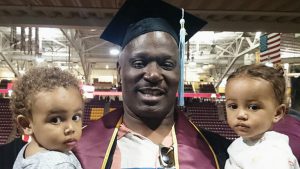
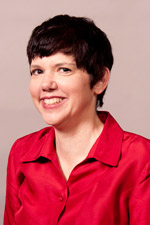
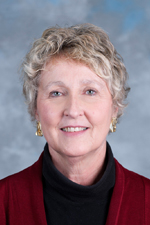

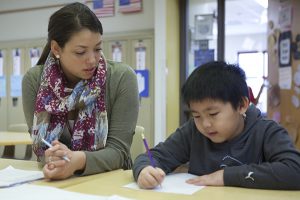
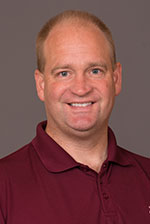
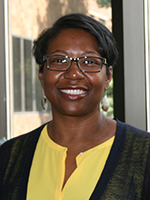


 About Dr. Lee: Rich’s research interests are in understanding the psychological aspects of culture, ethnicity and race that function as risk and protective factors for well-being, mental health, and achievement in ethnic and racial minority populations. Dr. Lee has received NIH, NSF, and foundation funding to support his research.(Full bio)
About Dr. Lee: Rich’s research interests are in understanding the psychological aspects of culture, ethnicity and race that function as risk and protective factors for well-being, mental health, and achievement in ethnic and racial minority populations. Dr. Lee has received NIH, NSF, and foundation funding to support his research.(Full bio) Hollman is an educational psychologist with a passion for engaging communities and young children to improve child and family outcomes. Alisha’s interest focuses on two primary strands of research: a clinical foci on parenting education and development and an applied foci centralized around early childhood assessment and intervention.
Hollman is an educational psychologist with a passion for engaging communities and young children to improve child and family outcomes. Alisha’s interest focuses on two primary strands of research: a clinical foci on parenting education and development and an applied foci centralized around early childhood assessment and intervention. There are now a number of evidence-based interventions for adolescent depression; however, many adolescents who receive one of these interventions do not respond. There is increasing recognition that treating depression more effectively requires taking into account individual differences and providing adolescents with treatment that is optimally matched and adapted over time to their individual characteristics, needs, and circumstances. In this presentation, I will discuss our work developing and evaluating personalized interventions for adolescent depression.
There are now a number of evidence-based interventions for adolescent depression; however, many adolescents who receive one of these interventions do not respond. There is increasing recognition that treating depression more effectively requires taking into account individual differences and providing adolescents with treatment that is optimally matched and adapted over time to their individual characteristics, needs, and circumstances. In this presentation, I will discuss our work developing and evaluating personalized interventions for adolescent depression. Dr. Leslie Leve is a developmental psychologist who has used natural experimental designs to examine the interplay between social and inherited influences on child and adolescent development. This includes adoption studies where children have been reared by unrelated caregivers, intervention studies with children in foster care, and studies of siblings who have been reared apart since birth. Leslie is the Associate Director of the Prevention Science Institute and the Associate Dean for Research in the College of Education at the University of Oregon. She currently serves as President-Elect of the Society for Prevention Research. Her research is currently funded by NIH and IES.
Dr. Leslie Leve is a developmental psychologist who has used natural experimental designs to examine the interplay between social and inherited influences on child and adolescent development. This includes adoption studies where children have been reared by unrelated caregivers, intervention studies with children in foster care, and studies of siblings who have been reared apart since birth. Leslie is the Associate Director of the Prevention Science Institute and the Associate Dean for Research in the College of Education at the University of Oregon. She currently serves as President-Elect of the Society for Prevention Research. Her research is currently funded by NIH and IES. 
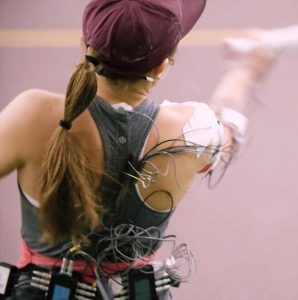
 The three-day symposium in May 2015 focused on epigenetics, the study of how DNA methylation affects gene expression and mental and physical health. The symposium featured leading researchers investigating topics ranging from the way experiences of parents can impact DNA methylation to how child maltreatment can affect how genes are expressed and lead to mental and physical health risks. Each presenter contributed an article to this Special Section of the Journal.
The three-day symposium in May 2015 focused on epigenetics, the study of how DNA methylation affects gene expression and mental and physical health. The symposium featured leading researchers investigating topics ranging from the way experiences of parents can impact DNA methylation to how child maltreatment can affect how genes are expressed and lead to mental and physical health risks. Each presenter contributed an article to this Special Section of the Journal. The
The  Since 9/11, more than 1 million parents have been deployed to war in Afghanistan and Iraq. For those parents, the difference between parenting before deployment and after returning home is stark — and not well studied
Since 9/11, more than 1 million parents have been deployed to war in Afghanistan and Iraq. For those parents, the difference between parenting before deployment and after returning home is stark — and not well studied